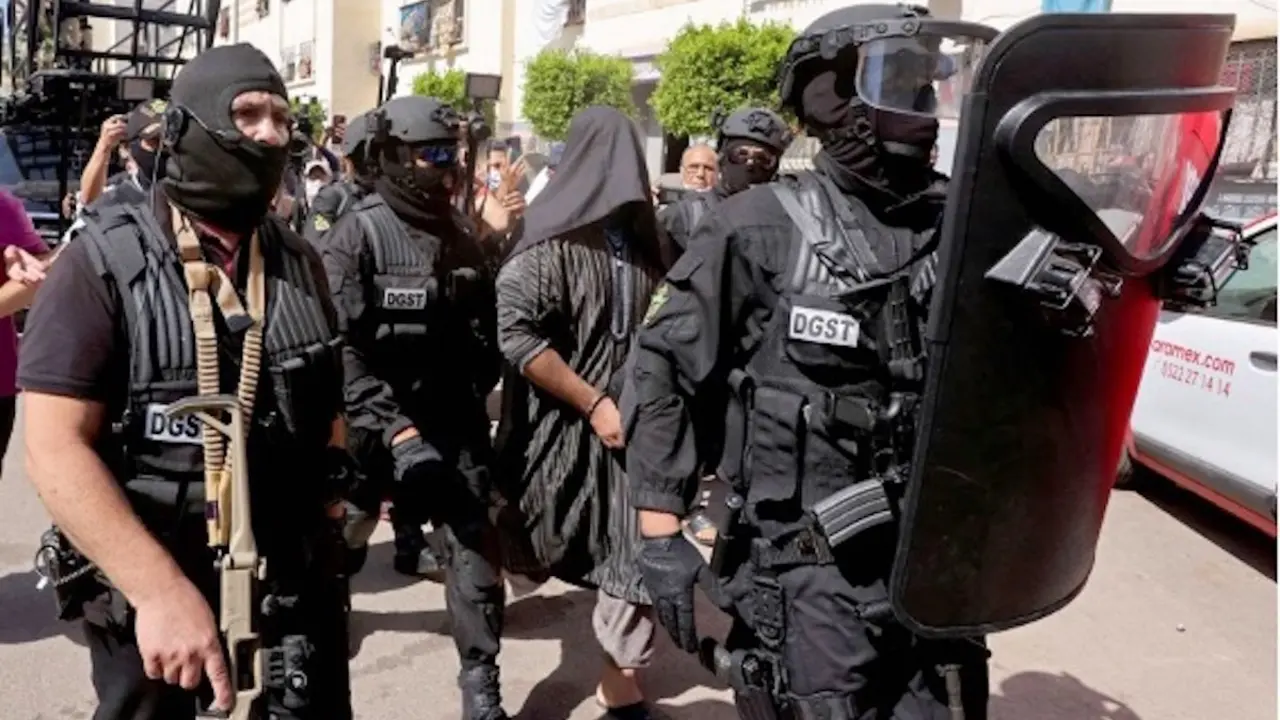Joe Biden: "We will not forget, we will not forgive, we will hunt you down and we will make you pay"

This was the strong response of US President Joe Biden to the attacks outside Kabul airport that have claimed the lives of at least 90 people, including Afghan civilians and 13 members of the US Navy.
The attack, claimed by ISIS-K, the Daesh affiliate in Afghanistan, is the deadliest attack on US troops in Afghanistan since 2011.

In an emotionally charged speech to US society, Biden referred to the slain soldiers as "heroes engaged in a mission that saves lives". He went on to warn that "the US will respond with force and precision in response. I will defend our interests and our people with everything under my command", he warned.
In this sense, the day before the attacks yesterday was marked by several warnings throughout the morning in which countries such as the United States, Australia, the United Kingdom and Germany warned of the danger of an "imminent terrorist attack", according to US intelligence reports, and asked the population to stay away from the airport. Hours later, a first explosion occurred in the vicinity of the airport, followed by a second near the Baron Hotel.

Despite the terrorist attack and significant casualties, Biden has continued in the same vein ahead of the US troop withdrawal scheduled for 31 August, stating that "we can and must complete this mission. The terrorists will not intimidate us. We are going to continue with the evacuation (...) the time has come to end a 20-year war", he concluded.
His speech was also not without controversy after referring to the US role in the Afghan war. So much so that the US president stressed that "I have never believed that we should sacrifice American lives to establish a democratic government in Afghanistan, (a country) that has never been united and (that is) made up of tribes that have never gotten along".

These statements come against a barren backdrop for US foreign policy. In Afghanistan, the longest war for a major world power, the US is estimated to have spent more than $2.26 trillion on the occupation, costing Americans more than $300 million a day. Add to this the human losses, and the scenario gets even worse. Since 2001, 2,433 US soldiers have died in the war, along with 1,444 allied soldiers, and an estimated 71,000 civilians have died as a direct result of the war, according to the Costs of the War project.
Twenty years later, Afghanistan is once again facing the same challenges, only more acute. The Taliban managed to take control of virtually the entire country in just weeks, with little resistance from the Afghan army. These insurgent occupations directly jeopardised the human rights gains that were achieved during the 20 years of international troops are doomed to fade away.

The scenario is not unfamiliar since, as on many occasions, history is repeating itself. Afghanistan, with the arrival of the Taliban, has no democratic project either in the short or long term. The reason why the United States decided to get involved in the country, the "war on terror" championed by Bush, has not fulfilled its mission. With the Taliban controlling the country and with terrorist threats from groups such as Daesh, not to mention Al-Qaeda, which maintains close relations with the Taliban, Afghanistan has become a breeding ground for terrorist groups and insecurity, with all the consequences that this entails.
On the other hand, Spain is winding up its evacuation operation in Afghanistan. This morning, the last two Air Force planes, two A400M, arrived in Dubai early in the morning, according to the Ministry of Defence.

Now, with the recent attacks, the situation is getting worse. The number of deaths in hospitals continues to rise and, in parallel to US, Afghan and international politics, civilians are once again the main victims of this scenario. If we also focus on women's rights, they are practically non-existent with the arrival of the Taliban. In the last few hours it has been reported that the insurgents have kidnapped 270 Afghan women judges who are in imminent danger of death, not only because they are women, but also because they are state employees, according to reports.
The US is withdrawing its troops, but on the other hand is launching a direct threat against the terrorists. The consequences are still unknown, but what is already clear is the desperation of the Afghan population to flee the country. Before these attacks, in recent days we saw images of Afghans clinging to the wheels of planes evacuating in a desperate attempt to find a better future. Now Afghanistan is predicted to be an open war between jihadists, which far from establishing democracy, terror and violence will be the protagonists of the new stage of a country that hovers in darkness.








